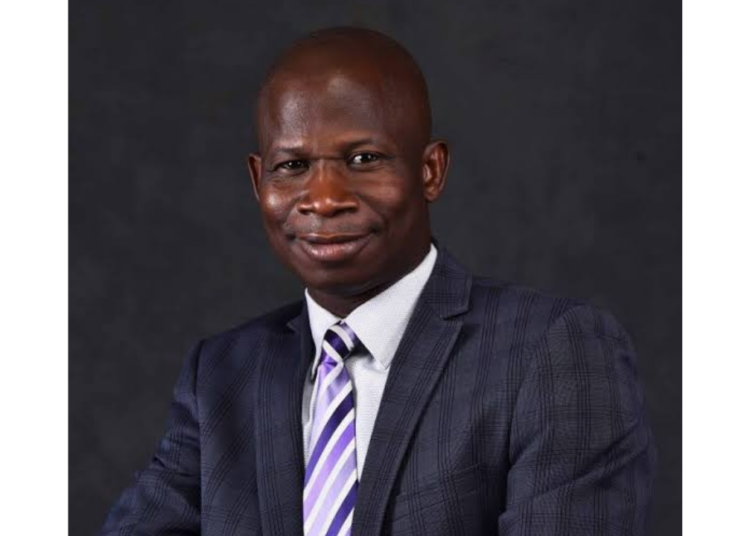There’s no doubt that the agricultural sector in the last one decade has come under serious strains despite measures deployed by previous governments to turn around its fortunes. While efforts were carried out to improve quality and quantity of agricultural produce, the result was never as envisaged due to multifarious challenges, including insurgency as well as non-affordability of inputs by farmers, among other militating factors.
Research has it that no fewer than 70 percent of Nigerians are engaged in agriculture, including engaging critical participants in the value chains. The incapacity of Nigeria to develop the capacity of farmers to enhance their productive capacity has become an albatross in providing teeming youths with employment opportunities. Apart from creating an enabling environment to de-risk the flow of private capital to the sector, the development of Nigeria is only feasible through broadening of frontiers relevant to the growth of agriculture.
Since independence in October 1960, the promise by Nigerian leaders to diversify the economy has been more of a verbal exercise than a commitment. There is no doubt that Nigeria’s natural competitive advantage lies in agriculture. Holding the flame to lighten the path of growth for the country’s agriculture is the foremost Agribusiness Civil Society Organisation in Nigeria known as the Nigeria Agribusiness Group (NABG). The group, composed of key business players in the agric sector coming together to work with local and global donor agencies, in collaboration with government, is set “to grow Nigeria’s agricultural economy, creating jobs and lifting millions out of the poverty hole”.
On Monday, the NABG convened a pre-presidential technical meeting to undertake a critical review of the agricultural sector in the last eight years, with the aim of setting an agenda for the planned presidential roundtable summit slated to hold soon in Abuja. The meeting, attended by critical partners like Harvest Plus, International Fertiliser Development Centre (IFDC)/HortiNigeria, International Institute for Tropical Agriculture (IITA), Ibadan and the Global Alliance for Improved Nutrition (GAIN) dwelled on reminiscent discussions on areas critical to the development of the agricultural sector
The sole purpose of broadening its potentials and engaging experts was anchored on how best to move the sector. Among stakeholders that attended the meeting included government officials, industry leaders, experts and representatives of local and global civil society and organisations in addressing agricultural challenges; foster collaboration and provide innovative solutions in agribusiness, among others.
The technical meeting, according to the Group, is a high-level gathering of government officials, industry leaders, academics, researchers, and representatives from civil society organisations to set the tone and provide broad perspectives on the theme of the planned presidential roundtable summit on agribusiness.
Among objectives of the technical meeting that held at the International Institute of Tropical Agriculture, Abuja office, included bringing together diverse perspectives for the upcoming presidential roundtable summit that provides a platform in shaping policies; explore emerging trends, promote sustainable agribusiness development in the next four years; facilitate dialogue and provide a platform for open and constructive dialogue on pressing issues affecting Nigeria’s agribusiness sector; foster collaboration and encourage partnership among stakeholders to enable government address complex challenges and promote inclusive development; engage diverse expertise and address the needs of the nation and citizens to address key challenges in the Nigerian agribusiness sector through evidence-based discussions, and identify innovative solutions as participants share insights, experiences, and innovative ideas to tackle current and future challenges confronting agriculture.
The technical meeting of experts and key players sought to prepare ground for the planned presidential roundtable summit on various aspects of agriculture, especially on digital transformation of the sector and integration of the value chain of the sector to achieve its full potential. The relevance of National Food Security and Resilience of Agric technologies and precision Agriculture, market trends and consumer trends and assessing environment for sustainable farm practices form the fulcrum of brainstorming sessions during the technical meeting convened by the NABG.
Considering heavy losses by farmers, the need to review agricultural policies and regulatory landscape for export and global trade; assessing and broadening logistics from farm-to-.table movements, including post-harvest losses and weak storage, experts and critical participants were engaged in setting out the tone for the upcoming NABG’s presidential retreat expected to come up with recommendations on how to revitalise the agricultural sector under the President Bola Ahmed Tinubu-led administration in the next four years.
Director General of the NABG, Dr Manzo Maigari, notes that the agribusiness economy is worth tens of trillions of naira and provides livelihoods for a greater part of the population. Blessed with 81 million hectares of arable land, out of which less than 30 percent is being used, he says a fully developed agric sector will provide the country a fast line for food security. Apart from the NABG mapping out strategies to improve on agribusiness through the convening of a presidential retreat on agriculture, Manzo adds, “This year’s presidential round table meeting is unique in the sense that it is essentially to review the performance of the agric sector in all facets and come up with a report that shall be presented to the new administration on how to tackle the challenges militating against the development of agriculture”.
Agreeing with the submission by Manzo, who served as Kaduna State Commissioner for Agriculture, Forestry and Commerce from 2015 -2019, the Country Manager of Harvest Plus, Yusuf Dollah, said working for food security for the nation can only be attained through collective and deliberate efforts by stakeholders and agricultural experts, including local and global partners, in maintaining and sustaining quality of food production for both local and foreign consumption.
Nigeria’s Country Director of Global Alliance for Improved Nutrition (GAIN), Dr. Michael Ojo, notes that the presidential roundtable summit has become imperative, considering the need to improve food production for the nutritional requirements of Nigerian citizens who are mostly malnourished. In his words, “Nigeria is facing a malnutrition problem, poor diet, poor access in terms of economic opportunities as 80% of Nigerians are facing food insecurity.”
Dr Ojo insists that malnutrition is caused by poverty, as he called on governments at all levels, in collaboration with relevant stakeholders in agriculture, to create an enabling environment to support small holder farmers to transform agriculture through investment in requisite technology. The IFDC)/HortiNigeria representative, Dr. Abdullahi Umar, calls on the need for availability of incentives through massive support of small holder farmers. He promised that IFDC/HortiNigeria is always a willing collaborator and partner with the NABG to advance the growth of the agric sector in the country.
Against the backdrop of the sterling collaborative and partnership footprints of the NABG and other critical stakeholders in the agric sector, the planned presidential retreat promises new strategies for Nigeria’s agricultural development. In the midst of numerous challenges posed by Climate Change that has become a major driver of conflicts, the problems associated with agriculture can only be tackled through deliberate measures.
Recharging Lake Chad at the sum of $20 billion in channeling the Bangi River into Lake Chad could be a game changer and facilitate the opening of exciting opportunities for massive agricultural production in creating agro-industrial corridors and hubs with the potentials of exporting food and other agro-allied products.
On Climate Change policies, the NABG DG has revealed that the National Council for Climate Change has done a great deal of work in terms of National Quality Policy that has led to the setting up of the National Quality Council. In the policy, according to him, agriculture is captured as the highest contributor to national determined contributions (NDCs), at 68 percent. With the NABG giving support in developing an implementation framework for climate-smart agriculture, in collaboration with the Federal Ministry of Agriculture, Water Resources, Science and Technology, among other critical stakeholders, when ratified, such could go a long way to guide policy implementation efforts and provide tools for monitoring and evaluation.
So many opportunities abound on Climate Change that can only be realised if Nigeria develops critical institutional frameworks for monitoring and management of issues in order to reap heavily from such opportunities, especially on carbon trading that now provides huge opportunities for mobilising inherent within communities for adaptation and resilience.
As Nigerians look forward to the convening of the first presidential roundtable retreat on agribusiness, not a few are convinced that the country’s walk to her full potential in the sector is just about to commence.





